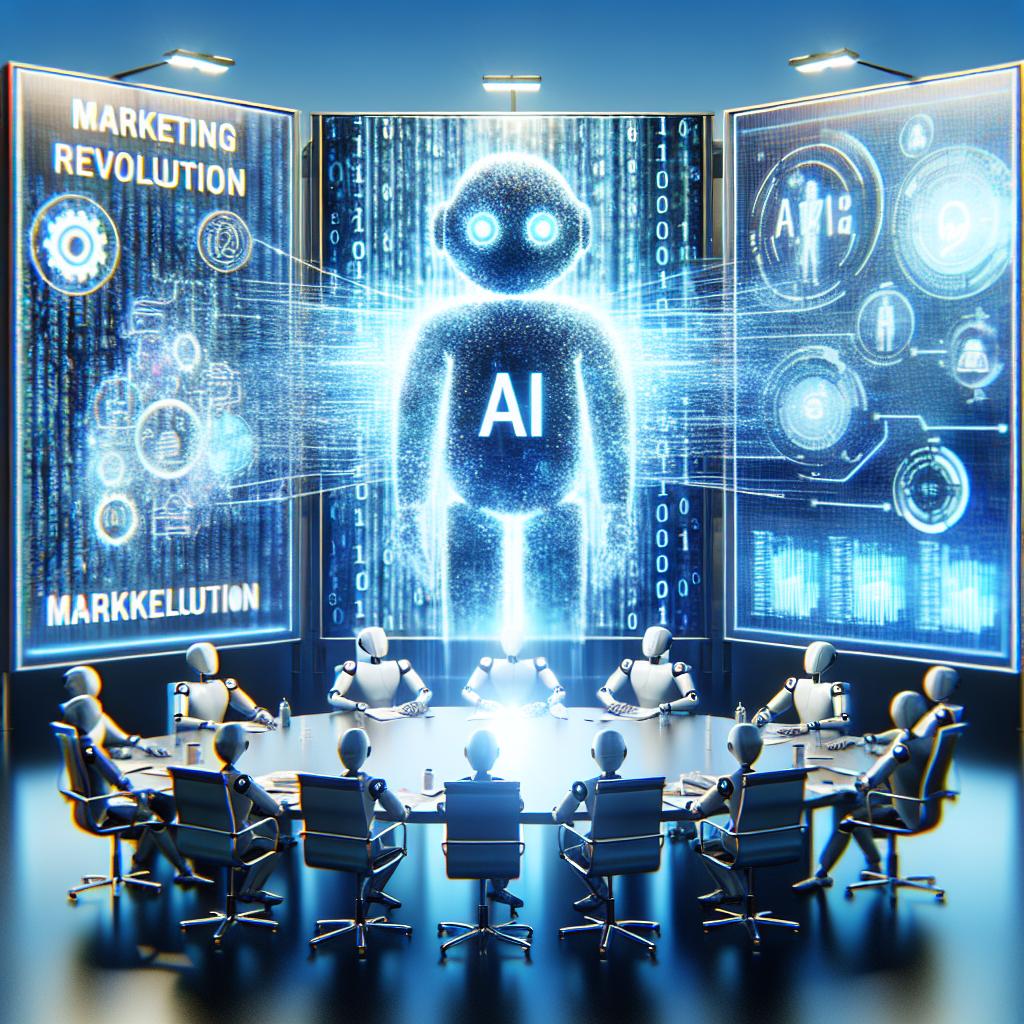How Can You Use Artificial Intelligence to Revolutionize Your Digital Marketing Strategies?
The Intersection of AI and Digital Marketing
Digital marketing has evolved significantly over the past decade. With the advent of artificial intelligence (AI), marketing strategies can now harness data like never before. AI is not just a trend; it is revolutionizing how businesses engage with their customers. This article explores various avenues through which AI can enhance digital marketing strategies.
Understanding Customer Behavior
At the core of digital marketing is consumer understanding. AI can analyze vast amounts of data to predict customer behavior. This includes:
- Predictive Analytics: Leveraging algorithms to forecast future buying patterns based on historical data.
- Sentiment Analysis: Using AI to gauge customer sentiment from social media interactions, reviews, and surveys.
- Segmentation: Categorizing customers into distinct groups for targeted marketing efforts.
By utilizing these features, businesses can tailor their marketing messages to meet specific customer needs, creating a more personalized experience.
Enhancing Content Creation
Content is a cornerstone of effective digital marketing. AI can streamline the content creation process in several ways:
Automated Content Generation
AI tools can create basic content structures, such as blog posts or social media updates, speeding up production. For example, AI can generate articles using predefined templates and data inputs, allowing teams to focus on strategy rather than mere content assembly.
Content Optimization
AI can enhance existing content by providing insights into keyword usage and readability levels. By using tools that analyze competitor content, businesses can optimize their own articles to increase search engine visibility.
Personalization at Scale
The rise of AI allows marketers to personalize experiences in a way that was previously impractical. Dynamic content delivery adjusts marketing materials based on user preferences and behaviors in real-time.
Email Marketing
AI can customize email content for individual users. By analyzing past interactions, businesses can predict the best time to send emails, the subject lines that resonate, and the types of content that are most engaging.
Web Experience
Personalization extends to websites as well. AI tools can adapt web pages to display products or articles that align with a visitor’s interests, leading to higher conversion rates.
Optimizing Advertising Campaigns
Advertising is a significant aspect of digital marketing, and AI brings a new level of efficiency. The integration of AI in advertising is making campaigns more effective through:
Programmatic Advertising
AI algorithms analyze demographics, preferences, and past behavior to target ads more accurately. This eliminates wasted expenditures on irrelevant ads, ensuring that marketing budgets are used effectively.
A/B Testing
AI can automate A/B testing, analyzing variations more quickly and accurately. It enables real-time adjustments to campaigns based on performance data, ensuring optimal results.
Social Media Management
Social media is an invaluable tool for marketers. AI can enhance social media strategies through:
Social Listening
AI can monitor brand mentions across various platforms, providing insights into customer opinions and emerging trends. This allows marketers to engage with their audience promptly, fostering a strong brand-customer relationship.
Engagement Bots
Chatbots powered by AI can manage social media interactions, offering immediate responses to customer inquiries. This increases engagement while freeing up human resources for more complex tasks.
Data Analysis and Reporting
The ability of AI to process data far exceeds human capabilities. This results in:
Advanced Analytics
AI-driven analytics tools can identify trends and anomalies in marketing performance data. This allows businesses to pivot their strategies quickly, enhancing overall effectiveness.
Automated Reporting
Automation saves time and resources. AI generates reports highlighting key metrics and performance indicators, making it easy for marketers to track progress and make informed decisions.
Challenges and Considerations
While AI offers numerous benefits, businesses should approach its integration with caution. Challenges include:
- Data Privacy: With increasing scrutiny regarding data usage, businesses must ensure compliance with regulations.
- Quality of Data: AI’s effectiveness relies heavily on the quality of the data it processes. Poor data can lead to misguided strategies.
- Skill Gap: Implementing AI technologies may require specialized skills that the current workforce may lack.
Addressing these issues is crucial for successful AI integration.
Conclusion
Artificial intelligence is not merely a tool; it is a transformative agent in digital marketing. By leveraging AI, businesses can understand their customers better, create personalized experiences, optimize advertising campaigns, manage social media effectively, and conduct in-depth data analysis. However, it is important to navigate the challenges that come with this technology.
The successful application of AI in digital marketing can lead to higher engagement, better conversion rates, and enhanced customer loyalty. As AI continues to evolve, adopting these technologies may not only improve marketing strategies but also ensure a competitive edge in an increasingly crowded marketplace.
Incorporating AI into your digital marketing strategy is no longer just an option; it is becoming a necessity for businesses seeking to thrive in a technology-driven world.







